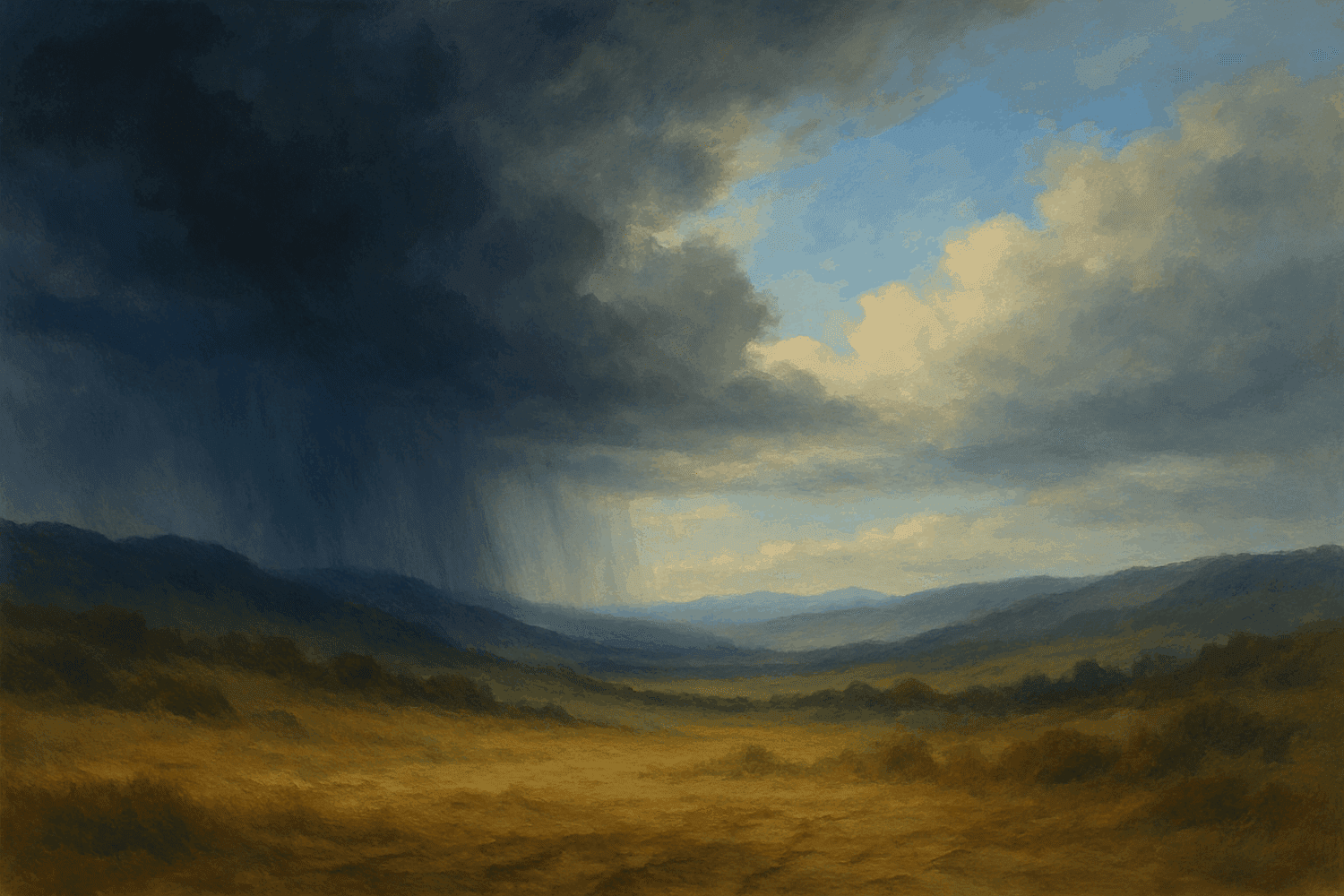
The Haftarah Project: Shabbat Hol Hamo’ed Sukkot—Between Wrath and Hope
Image generated by Dall-E.
In the Haftarah for Shabbat Hol Hamo’ed Sukkot, we read about the War of Gog and Magog. The prophet Ezekiel foresees a cataclysmic showdown between God and Gog, ruler of the land of Magog, during the latter’s invasion of the Land of Israel following the Jews’ return from exile.
Gog will not be defeated by Israel’s military might, but by God’s direct intervention in a stunning display of wrath and vengeance. All living creatures will tremble and the mountains will collapse as God inflicts devastating earthquakes, pestilence, torrential rain, and hailstones upon God’s enemies. The bodies of Gog’s soldiers will be picked at by birds and beasts until the Israelites bury the remains, thereby purifying the land and ushering in the Messianic era.
God proclaims, “v’hitgadilti v’hitkadishti,” which has since been adapted into our liturgy as “yitgadal v’yitkadash.” “I will manifest My greatness and My holiness. I will make Myself known in the sight of many nations, and they shall know that I am the Lord” (38:23). Whenever we recite the Kaddish, we invoke God’s greatness manifesting as wrath, jealousy, and destruction, which, says the Haftarah, is the only way to ensure that no one will dare profane the name of God again.
Ezekiel’s graphic imagery is, in a way, meant to give hope to the Israelites, who are still in exile in Babylon. Having experienced the destruction of their land by the same God for their own sins, they now eagerly anticipate the annihilation of their enemies and their return home.
The primary connection of this haftarah to Sukkot is that, according to the Hai Gaon, the War of Gog and Magog is said to take place in Tishrei, the month of Sukkot. Since October 7, there has been much speculation–from Times of Israel contributors to Evangelical Christian pastors to popular Jewish social media accounts–that the war in Gaza might be the war to bring about the final redemption.
Unlike our ancestors in exile, however, many Jews in the diaspora today cannot earnestly believe that the Jewish notion of redemption, which includes the ingathering of exiles, will be preceded by a literal or metaphorical apocalypse. A growing number of Jews, both inside and outside Israel, are becoming less likely to support the level of violence we see today against those considered to be our enemies. Instead, they (and we) are confronting difficult realities surrounding the war in Gaza, and are paving innovative yet realistic paths toward a just, peaceful coexistence.
Fortunately, the haftarah does not conclude with the Israelites reveling in God’s destruction, but with them actively cleaning up the aftermath. Rather than having Gog swallowed by the ground like Korah, or drowned in the sea like Pharaoh, God leaves the remains of Gog’s armies scattered across the land. The entirety of Am Yisrael spends seven months burying them in a designated site, the Valley of Hamon-Gog (Gog’s Multitude). Only then will the land be purified (39:16).
Proper burial is considered to be a great mitzvah, and this seven-month campaign is, according to Rashi, ultimately meant to bring praise upon Israel for treating their enemies with such dignity. But more than that, it demonstrates that the Israelites will recognize their own agency in bringing about redemption, and will see the humanity in their supposed enemies to do so. The Israelites cannot rely only on God’s anger, or on continued war and destruction, for their homeland to be pure, holy, and livable again.
When we build and dwell in the Sukkah, we are similarly reminded of both our reliance on God for protection, as well as our agency to lean into our vulnerabilities to protect one another. As Rabbi Menachem Creditor wrote on the first anniversary of October 7, “In its fragility, [the Sukkah] carries a profound lesson: we must protect ourselves and each other—and our fragile world.”
Given that Ezekiel’s prophecy refers to a future event, the possibility remains that if we heed the Haftarah’s instruction about honoring our shared humanity, we may bring about a sort of redemption and purity that does not require God’s catastrophic violence.
Editor’s Note: The reflections from the Haftarah Project represent the thoughts and opinions of the author.

